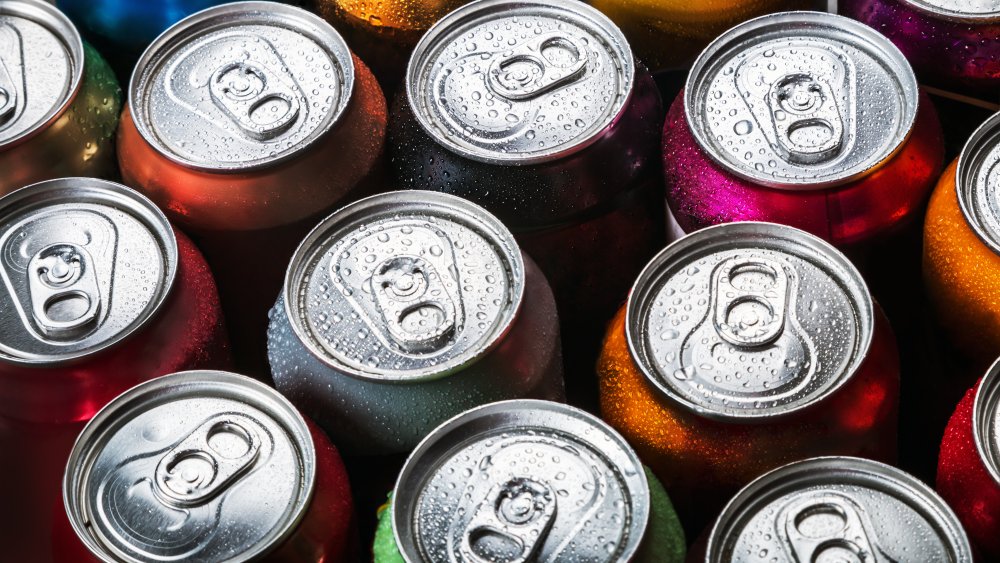The Original Purpose Of Soda May Surprise You
Despite the fact that the idea that a tooth left in a glass of Coca-Cola will dissolve overnight was simply a rumor (via Snopes), we know that drinking excessive amounts of soda is bad for your health. As Authority Health warns, sodas tend to contain vast amounts of sugar, induce weight gain, and contribute to multiple health risks. With all that cultural baggage that in mind, soda's original medicinal purpose may come as a surprise.
Soda, the branded sugary drink also known as pop, began as an industry in the late 19th century with Dr Pepper's creation in 1885 and Coca-Cola's in 1886. Like our contemporary wellness industry that encourages you to rub special rocks over your body, the 19th century promoted the idea that anything remotely medicinal tasting was good for you once bottled and branded as a tonic. The Skeptical Inquirer notes that Dr Pepper, seemingly christened after a pharmacist called Dr. Charles T. Pepper under whom the drink's owner worked, promoted itself as a "brain tonic." Similarly, Coke in its original iteration with wine and cocaine, was said to cure dyspepsia, impotence, and morphine addiction, making it "The Ideal Nerve and Brain Tonic."
These more obvious examples weren't the only ones, however. A HuffPost piece from 2014 pointed out that 7-Up found early success due to its lithium content which enhanced the mood of its drinkers. Or, as an advertisement quoted by Medical Bag goes, it "takes the 'ouch' out of 'grouch.'"
Continued health
Of course, time passes and we no longer openly sell drinks that combine wine with cocaine. Coca-Cola's original wine was quickly taken out due to Georgia's early prohibition laws. Yet the charge against the soda's use of cocaine only continued Coke's image of good, old fashioned, American health.
In 2013, James Hamblin of The Atlantic explored the evolution of Coca-Cola. After removing its alcohol content, Coke presented itself as "Coca-Cola: The temperance drink." This gave it a healthy edge. However, Coke's original advertisement to cure impotence backfired as the now alcohol-free drink could be sold widely, meaning Black people who could not enter soda shops for Coke could benefit from its purported "vitality." A racist backlash against a perceived rape epidemic persuaded Coca-Cola to remove the serious amounts of cocaine it once had.
The Art of Manliness points to this clean-cut image of Coca-Cola and other sodas as the reason they skyrocketed in popularity during the prohibition era and latched onto the American psyche in the decades following. However, with the rise of the automobile and the homogenization of the soda market, the quality of the drinks declined into being an indistinguishable sugary mess, as opposed to what The Art of Manliness describes: a sweet, candy-like refreshment to be enjoyed in moderation, as it was during the prohibition era, not an object for guzzling.

